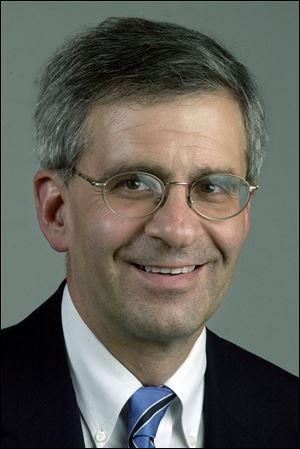
COMMENTARY
Looking back to go forward
5/25/2014
Shribman
In almost every period of our history, the national focus has been on the future.
The debate about slavery was about the preservation or the abolition of the peculiar institution, not about its origins. The debate about civil rights was about the prerogatives of blacks in a changing nation, not about the roots of prejudice.
Which is why this is such an extraordinary moment in our national life. The country in recent weeks has engaged in three unusual debates focused not on a misty future, but on a cloudy past.
Standing out amid re-evaluations are three critical undertakings in reanalysis:
How did we get into this irrational situation with medical care, where health insurance is tied to employment?
No one designing a health-care system for a post-industrial nation of enormous wealth and with some of the most advanced medical facilities in the world would tie the health of its citizens to employment. No one did.
It just developed that way, the result of efforts to improve the quality of life of workers’ families without providing wage hikes and without exposing their improved circumstances to increases in their tax bills.
It was, for a time, a great boon, especially to unionized workers in the manufacturing sector and to hospitals and physicians. But it warped the job market and distorted the medical world, which increasingly became dependent on insurance reimbursements rather than direct patient fees.
This situation led to a generations-long cry for national health insurance, which has reopened the question of tying medical care to employment. Now, under Obamacare, many businesses are evaluating whether they ought to offer health insurance at all.
They instead are considering whether they ought to provide a stipend for their workers to purchase their own plans in the new exchanges.
Did the war on poverty really help reduce poverty?
This is one of those debates whose answers lie in the lies statistics tell. If the debaters sit on the right, they argue that the Lyndon Johnson-era anti-poverty programs created a culture of dependence, undermining the dignity and family structures of the poor. If they sit on the left, they argue the programs ameliorated poverty and limited its spread.
Spending on programs employing an income test — providing proportionately more to the poor than to others — now represents about one out of every six dollars of federal expenditures. Those on the right argue that official statistics indicate that the number of poor has increased or remained constant since 1964, despite billions of dollars of spending. But Bruce Meyer of the University of Chicago and James Sullivan of Notre Dame argue that poverty has fallen by 12.5 percent.
This is more than a debate for scholars and ideologues. Its answer will give shape to future budgets.
Was Bill Clinton an effective economic steward?
This month, the former president embarked on an effort to polish his economic record, claiming that 7.7 million people emerged from poverty during his administration.
Historians have long debated how to parcel out credit and blame for economic booms and declines. The reason why the debate began is important. It underlines the significance — in the Clinton years, at the end of the Obama years, and at the beginning of the next presidency — of the issue of inequality.
By the time the 2016 presidential campaign begins — it may include Mr. Clinton’s wife, former Secretary of State Hillary Clinton — Sen. Elizabeth Warren of Massachusetts and French economist Thomas Piketty, both of whose books are spawning vigorous debates, won’t be the only ones talking about inequality.
David Shribman is executive editor of the Pittsburgh Post-Gazette.
Contact him at: dshribman@post-gazette.com